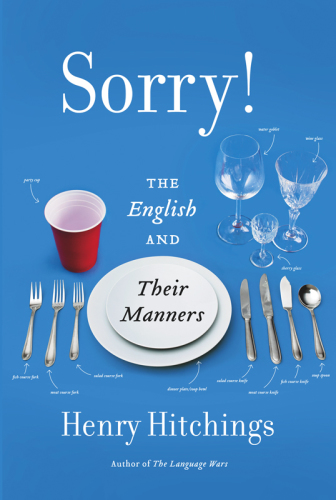
Sorry!
The English and Their Manners
- اطلاعات
- نقد و بررسی
- دیدگاه کاربران
نقد و بررسی

June 24, 2013
Journalist and theater critic Hitchings (The Language Wars) takes up the curious study of proper English behavior in his latest book. Manners matter to the English, yet the Daily Mail reported a study in 2008 “claiming that bad manners were the biggest problem facing society.” Part social history, part cultural critique, the book moves humorously from the ancient to the modern with pithy anecdotes and amusing factoids. In the medieval court of Henry II, “One shouldn’t attack an enemy while he is defecating, should avoid sharing secrets with one’s wife, and ought to look towards the ceiling when belching.” As the author notes, “people have been talking about ‘modern manners’ since the 18th century,” and the discussion continues. Throughout the book, Hitchings offers genuine insight into the paradox of the English character: “The English are polite, and they are also rude. Extreme rudeness and elaborate politeness both stem from feelings of unease; they are different techniques for twisting one’s way out of discomfiture.” This seriously amusing and illuminating book goes a long way toward explaining to Anglophobe, Anglophile, and the just plain puzzled why “the average Briton says ‘Sorry’ eight times a day.” Agent: Peter Straus, Rogers, Coleridge & White.

October 15, 2013
He might have been a Roosian, a French, or Turk, or Proosian, or perhaps Itali-an: Gilbert and Sullivan aside, the subject of Hitchings' (The Language Wars: A History of Proper English, 2011) latest is the beleaguered, class-obsessed Anglo-Saxon and the very notion of "Englishness." The author opens with the 1977 duel at Wimbledon between Bjorn Borg and John McEnroe, the latter of whom put a face to the word "ill-mannered." As Hitchings notes, we have all moved on: Today, "we find McEnroe's conduct authentic, even courageous, while Borg's seems that of an android." Yet McEnroe still speaks to the central point of this book: that rudeness and politeness both stem from the same origin, namely, "twisting one's way out of discomfiture." And no one is quite so discomfited as a Briton trying to make sense of the elaborate rules that govern society (see Rowan Atkinson's Mr. Bean). Though the mores-and-manners school of national description leads naturally to stereotyping and isn't much used by geographers or anthropologists these days, Hitchings clearly has fun with his subject(s), both the English themselves and the code of conduct that has evolved since the Middle Ages--when, he notes, someone commodiously counseled that "one should not attack an enemy while he is at stool." Evolve is a useful term here, since, as Hitchings notes, manners are not static. For one thing, "English eating habits have become markedly less predictable," even if sex remains "a subject mired in hypocrisy, mostly handled with either purity or prurience, often treated in a manner that seems a mixture of the furtive and the fetishistic." John Cleese's observation that the English are the only people on Earth with clenched hair is more economical, but Hitchings' book, if sometimes overgeneralized, is still a pleasure to read.
COPYRIGHT(2013) Kirkus Reviews, ALL RIGHTS RESERVED.

October 15, 2013
Although most people have some idea of what good (or bad) manners are, it's less likely they know where they come from. Hitchings addresses that through a comprehensive historical review, with some fun tidbits along the way. He brings the perspectives of the past to bear on customs of the present, using examples from writers such as Samuel Pepys, Lord Chesterfield, and Fanny Trollope. This rambling examination is concerned only with English manners, not those of other British countries. Hitchings is affectionate toward typically English mannerisms such as tactfully saying one thing, when meaning anotherwhen told, We really must have lunch sometime, does anyone believe it'll actually happen? The book contains some illuminating examples of how manners are a social construct and can vary widely across cultures. The tour of manners encompasses living conditions, language, social structures, innovations, and philosophy throughout centuries. This is not a book of etiquette instruction, but deconstruction. For those who wish to dig deeper into the myriad forces at work behind polite customs, large and small, the book is sure to please.(Reprinted with permission of Booklist, copyright 2013, American Library Association.)




دیدگاه کاربران